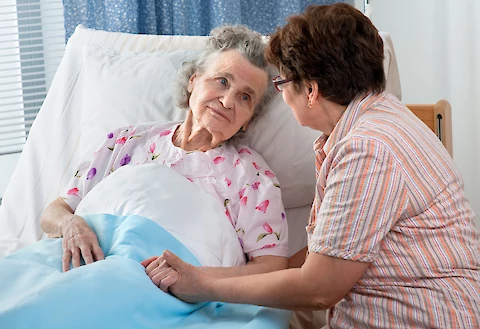
How Breaking a Hip Increases Your Risk of Poor Health (And What You Can Do About It)
Broken bones may require surgery, take time to heal, and often need physical therapy. A hip fracture usually requires surgery. In some cases, the hip may need to be replaced. The recovery period can range up to a year. After surgery, patients are encouraged to begin physical therapy immediately and continue as long as recommended. It can take up to a year to regain complete mobility.
Complications
Seniors requiring hip surgery may face a more prolonged recovery, depending on their health. At the start of recovery, seniors may experience long stretches of bed rest, which can lead to pressure sores. The lack of mobility can often lead to pneumonia, infection, and blood clots.
- Pressure or bed sores. When seniors remain in the same position for extended periods, ulcers may appear at points where the body is in contact with the bed.
- Pneumonia. Deep breathing can be difficult after hip surgery; however, shallow breathing can lead to pneumonia as the lungs fill with fluids.
- Infection. Secondary infections can occur when pressure sores are not addressed, or shallow breathing is allowed to continue.
- Blood clots. Clots may form in the legs. Parts of the clot can break off and travel to the lungs or heart.
While these complications are serious, they can be treated or prevented.
Treatments
Doctors may prescribe medication or recommend therapies to reduce the chance of complications. For example, changing positions while at rest can minimize the chance of pressure sores. Moving from a bed to a chair can reduce pressure at the same locations. The following preventative measures may be recommended.
Respiratory therapy is often a standard part of recovery to minimize shallow breathing that can lead to pneumonia or respiratory infections. Infections are treated with antibiotics, and blood-thinning medications are prescribed to reduce the chances of blood clotting. Physical therapy is part of recovery not only to restore mobility but to counter possible complications.
Prevention
A healthy lifestyle is the best prevention for bone fractures. However, bone loss increases with age. Low bone density appears in 56% of women and 18% of men over the age of 50. If countermeasures are not put into place, osteoporosis may develop. Density screenings identify the degree of bone loss, and various medications can slow the process.
Seniors should maintain a healthy diet that includes calcium and Vitamin D foods. Supplements may be prescribed to improve bone health. Exercise helps strengthen bones. Resistance training can help build bone density.
Finally, seniors should have their eyes checked and their medications reviewed. Poor eyesight can lead to missteps that end in falls. Medications or a combination of them can impact a senior's balance. Reviewing medications with a healthcare provider can reduce possible side effects such as dizziness.
Senior Helpers Salem, OR and Surrounding Area
Having in-home assistance can help during and after recovery. Senior Helpers Salem, OR provides in-home care to assist seniors with daily activities such as meal preparation and personal hygiene in Salem, Dallas, and Corvallis. Our trained staff can offer companionship services for seniors in the greater Salem area, including Albany and Keizer. Contact us to discuss how our services can help a senior loved one.